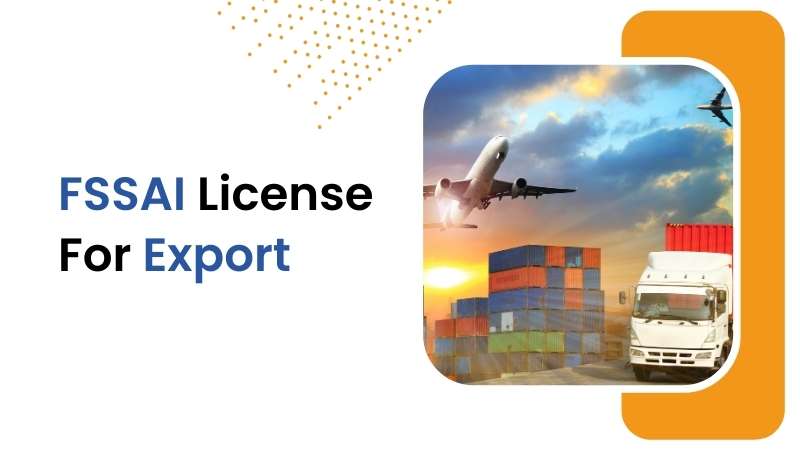

Exporting food products from India can be a profitable business opportunity for many. However, to do so, one needs to follow the rules and regulations set by the government, including obtaining the necessary licenses and certifications. One such license that exporters must obtain is the FSSAI license for export. In this blog, we will discuss everything you need to know about the FSSAI license for export, including its significance, types, and how to obtain it.
FSSAI stands for the Food Safety and Standards Authority of India, which is a government agency responsible for ensuring the safety and quality of food products consumed by the public. The FSSAI license for export is a certification that allows an exporter to sell food products to other countries. The FSSAI has set strict guidelines for food exports to ensure that only safe and quality products are exported from India.
The FSSAI license for export is essential for exporters because it ensures that the food products they export meet the safety and quality standards set by the FSSAI. Without this license, exporters risk facing legal actions and losing their reputation in the market. Additionally, many countries require an FSSAI license for imports of food products from India, making it mandatory for exporters to have the license to be able to sell their products in the global market.
The FSSAI has classified the FSSAI license for export into three categories, based on the size of the export business and the scope of export operations. The three types of licenses are:
Obtaining an FSSAI license for export can be a complex process, but it is necessary for exporters to comply with the FSSAI regulations. Here is a step-by-step guide on how to obtain an FSSAI license for export:
As discussed earlier, the type of FSSAI license required depends on the size of the export business and the scope of export operations. Therefore, it is essential to determine which type of license is required before starting the application process.
The next step is to register on the FSSAI website and create an account. The website has an online registration portal for food business operators (FBOs), including exporters.
After creating an account, the exporter must fill out the FSSAI license application form for export. The form requires the FBO's details, such as the business name, address, contact information, and the type of FSSAI license required.
Along with the application form, the exporter must submit several documents, such as the business registration certificate, PAN card, Aadhaar card, and a list of food products to be exported.
After submitting the application form and required documents, the exporter must pay the FSSAI license application fee. The fee depends on the type of license required, and the exporter can pay the fee online through the FSSAI website.
Once the application and fee are submitted, the FSSAI will review the application and documents. If everything is in order, the FSSAI will approve the license and provide the exporter with an FSSAI license number.
After obtaining the FSSAI license for export, the exporter must display the license number on all food product packaging and marketing materials. This ensures that customers and importers know that the products meet the FSSAI's safety and quality standards.
Obtaining an FSSAI license for export can be a lengthy process, but here are some tips to ensure a smooth and successful application process:
Obtaining an FSSAI license for export is a crucial step for any exporter of food products from India. The FSSAI ensures that only safe and quality food products are exported from the country, protecting the reputation of Indian food products in the global market.
By following the steps outlined in this blog, exporters can obtain the necessary FSSAI license for export and ensure a smooth and successful export business.
Thank you for reading our blog on obtaining an FSSAI license for export.
If you need assistance with obtaining an FSSAI license or any other matter related to your export business, please contact My Legal Clinic today.
Our experienced consultants are here to help you navigate the legal complexities of international trade and ensure the success of your export business.
Don't hesitate, reach out to us now to schedule a consultation.